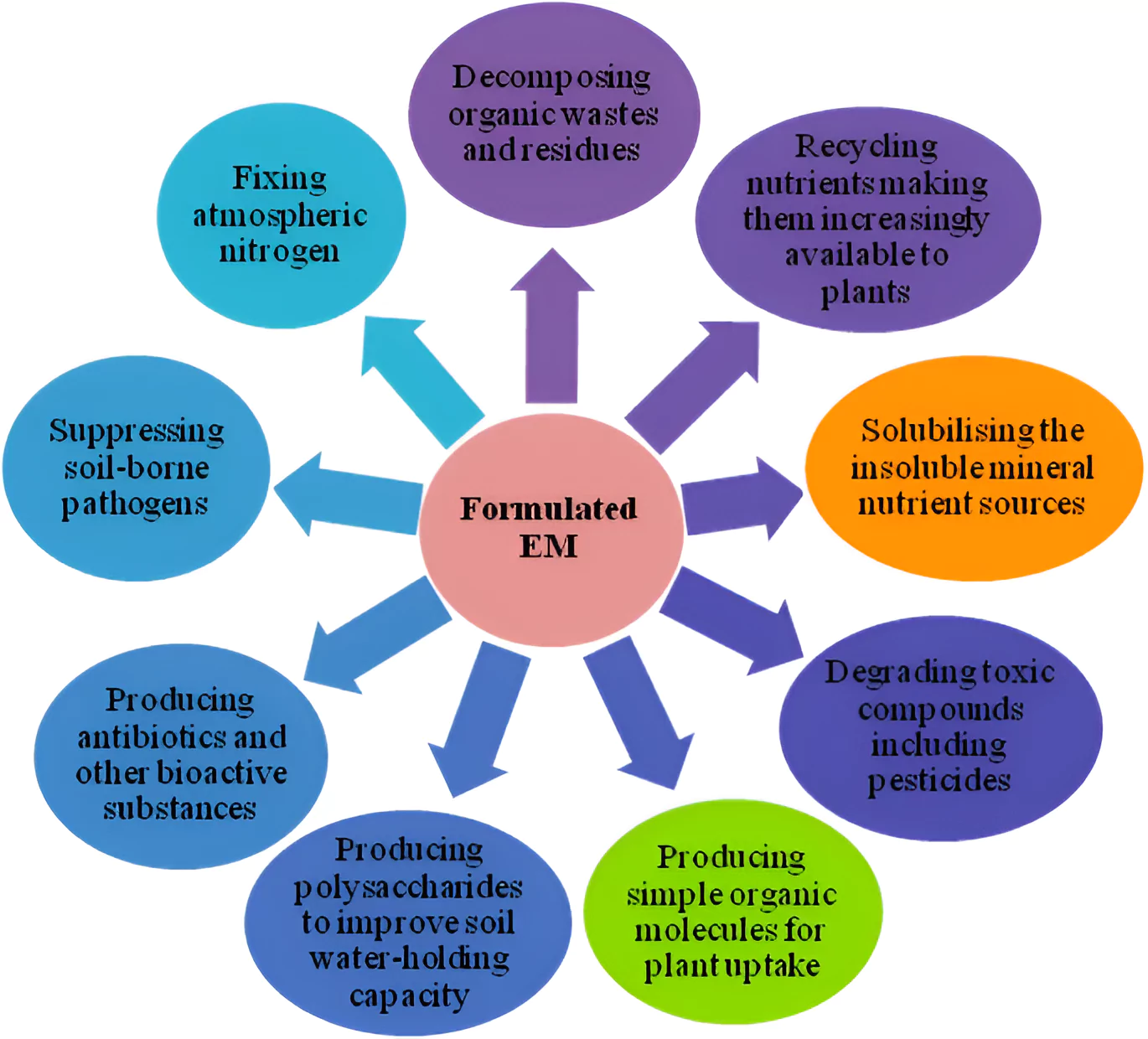Context
Three new microbial formulations based on granular lime and gypsum have been developed and validated by The ICAR- Indian Institute of Spices Research (IISR), Kozhikode.
Microbial Formulation
- It refers to a combination of one or more microbial strains/species conjugated with a safe, economical, and easy-to-use material as the carrier.
- Application: They are utilised in a myriad of industrial sectors, including food, agriculture, and sewage water treatment, as biocontrol agents, and in phytoremediation
|
Enroll now for UPSC Online Course
Indian Institute of Spices Research Develops three more Microbial Formulations to Help Farmers Improve Agricultural Productivity

- The formulations are Bactolime, Bactogypsum and Trichogypsum were developed using IISR’s own patent applied-technology.
- Bactolime: It integrates beneficial bacteria or plant growth promoting Rhizobacteria with liming material into a single formulation.
- The bacteria will ensure the availability of essential nutrients to plants and help in enhancing nutrient use efficiency.
- It will integrate liming material and beneficial bacteria to perform the function of improving the low pH of the soil and ensuring delivery of plant beneficial bacteria through a single product.
- Bacto Gypsum and Trichogypsum: These are gypsum-based bacterial formulations.
- They will act by buffering the soil pH to a near-neutral level, creating a favorable environment for the establishment of the microbes.
- This will improve the physical condition of the soil, enhance the availability of secondary nutrients, and boost overall microbial activity.
- Another product using this formulation technology, Tricholime, which integrates Trichoderma and lime, was released a few months ago.
Use of Gypsum (Calcium sulphate dihydrate) in Agriculture
- Source of calcium and sulfur for plant nutrition: Gypsum is an excellent source of sulfur and calcium for plant nutrition and improving crop yield as calcium is essential for most nutrients to be absorbed by plants roots and helps stimulate root growth.
- Improves acidic soils and treats aluminium toxicity: Gypsum has the ability to reduce aluminium toxicity, which often accompanies soil acidity, particularly in subsoils.
- Surface-applied gypsum leeches down to the subsoil and results in increased root growth.
- Improves soil structure: Gypsum has been used to improve aggregation (Flocculation) and inhibit or overcome dispersion in sodic soils. Soluble calcium enhances soil aggregation and porosity to improve water infiltration
- Flocculation is needed to give favorable soil structure for root growth and air and water movement.
- Helps reduce runoff and erosion: Using gypsum as a soil amendment is the most economical way to cut the nonpoint run-off pollution of phosphorus.
|
Also Read: Chemical Fertilizers Crisis in India
![]() 13 Apr 2024
13 Apr 2024
